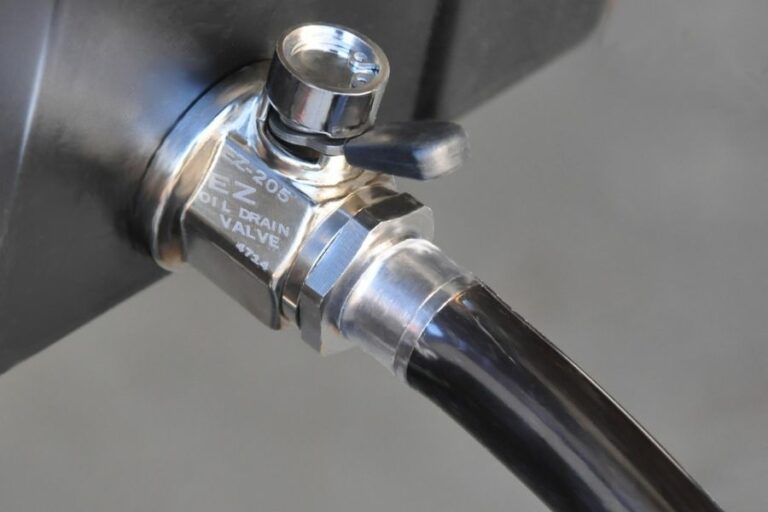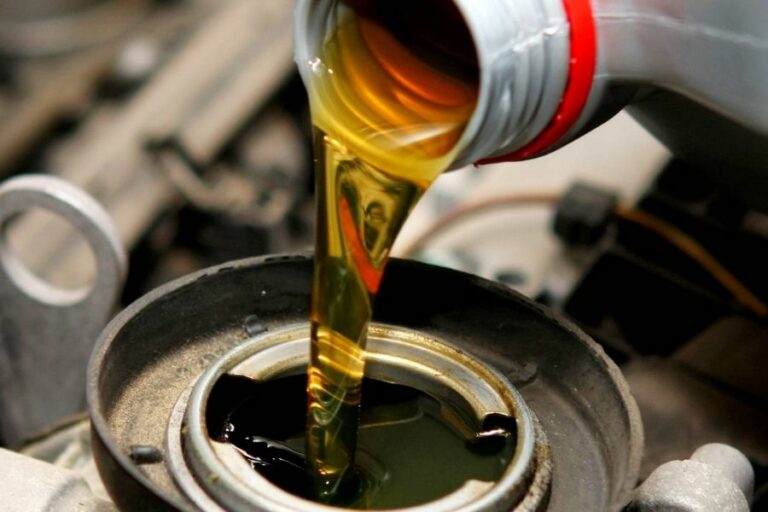Why Is My Car Losing Oil But No Leak or Smoke? (Solved)
Are you always pouring a quart of oil in your car even though there are no visible leaks or smoke from the tailpipe? This could signify a major internal engine damage or oil-burning issue.
You must find the exact cause to fix the damage to save your engine and prolong its lifespan. Let’s explore all major and minor causes, along with the possible preventive measures for such an anomaly in your car.
Why Is My Car Losing Oil Without Any Leakage or Smoke From the Exhaust?
There are multiple major and minor causes leading your car to lose oil earlier than expected. Understanding the reason for finding the best possible fix for such an occurrence.
Since losing engine oil might cause serious damage to your engine, you should take the causes into count as soon as the signs pop up.
Casual Oil Consumption By Engine
The internal engine components are lubricated and protected from extreme friction by the engine oil. Logically, the oil must not have changed in volume even after running for a while.
However, oil can still burn in the engine’s combustion chamber during typical operation.
This results from a blow-by, which happens when high-pressure gases combine with the crankcase oil after escaping past the piston rings.
Once brought into the combustion chamber, your car engine can burn this oil alongside the fuel and air.
A negligible amount of oil burning doesn’t show any smoke from the exhaust.
Engine oil consumption is normally mentioned in the manufacturer’s specs and is acceptable to some extent. However, consuming a lot of oil can indicate a problem.
Read Also: Why Is My Dodge Truck Losing Radiator Fluid And Smoking
Engine’s Internal Leakage
An engine, after running for several years, becomes fragile internally. The engine wall, gaskets, and blocks become weak due to their aging in very minute cracks and holes that you cannot detect easily.
Moreover, the hoses and pipes through which the engine oil is passed can also experience wear out with time.
Therefore, it causes the car to lose oil internally, which makes its way to the combustion chamber and is burned along with the fuel and air. It is a natural phenomenon for an aging engine.
However, regular maintenance of the hoses/pipes and changing the oil regularly to avoid debris can slow down the process of oil consumption for a while.
Damaged Piston Rings
Oil can leak into the combustion chamber and be burned when the piston rings are worn out.
It is because they cannot maintain an adequate seal between the cylinder wall and pistons. Hence, a sudden loss of engine oil is the result when you examine the dipstick.
Low engine compression from worn piston rings can also influence a negative engine performance and perhaps result in further damage.
You will lack power, experience slower acceleration, and get poor fuel economy if this occurs.
It’s crucial to address worn-out piston rings as soon as possible since, if ignored; they can seriously harm your engine.
The mandatory fix for this issue is to remove and replace the piston rings with a compatible new set. Hence, this procedure might charge you around $1500 to over $3000.
Read Also: Oil Leak from Distributor Symptom With Guidelines
Bad PCV Valve
A damaged PCV (positive crankcase ventilation) valve can cause a car to lose engine oil without showing any major leak or smoke.
The PCV valve helps regulate-consuming inside the engine’s crankcase and prevents harmful gasses’ buildup.
It does this by allowing some pressure to escape through the valve and into the intake manifold, where it is burned off during combustion.
If the valve becomes clogged or fails, it can no longer regulate the pressure inside the engine.
This can cause oil to escape from the crankcase and into the intake manifold, reducing the overall oil level in the engine.
Over time, this can lead to a decrease in oil pressure and increased engine wear. To prevent this, it’s important you regularly inspect and replace the PCV valve if necessary.
If you have a worn-out PCV valve, you only need to replace it with a new one, which may cost you around $30.
Read Also: Switched To Synthetic Oil Now Leaking (Solution)
Damaged Engine Head Gasket
The head gasket’s primary function is to seal the combustion chamber and prevent engine oil and coolant from leaking into other engine parts. It also helps maintain proper engine compression and prevent engine overheating.
The head gasket is sitting between the engine block and the cylinder head. A damaged or blown head gasket can cause engine oil consumption because it can allow engine coolant to mix with the engine oil.
This slowly decreases the oil volume and thus reduces its ability to lubricate the engine, leading to increased wear and tear.
Besides, the diluted oil may not maintain proper viscosity levels, resulting in less efficient engine performance.
Hence the loss of coolant can cause the engine to overheat, leading to further damage. Issues with the head gasket can make you worry, as fixing it is way too costly and time-consuming.
The entire engine block requires disassembling to replace the head gasket. As a result, you might need to spend more than $2000-3000 on average.
Worn-Out Valve Seals
Valve seals prevent oil from leaking into the combustion chamber and burning along with fuel.
When the seals become worn or damaged, oil can seep into the combustion chamber and mix with fuel, causing it to burn and increasing oil consumption.
Although valve seals get damaged due to aging and overuse of the engine. The increased oil consumption can occur without any visible smoke from the exhaust.
It is due to the seals being designed to prevent oil from leaking into the combustion chamber in large quantities.
With time, continuous oil consumption can lead to decreased engine performance, reduced fuel efficiency, and a need for frequent oil changes.
The only potential fix to this issue is to replace the damaged valve seals, which include tearing up the engine. Thus, you have to pay around $1000 or more to complete it.
Read Also: How To Remove Brake Line from Caliper Without Losing Fluid
How Can You Avoid Oil Loss with No Leak or Smoke?
The aging of an engine is inevitable. Hence the effectiveness and durability of an engine also decreases with time resulting in oil leaking internally.
But you can slow down this process and keep your engine healthy for a long time by preventing oil loss.
Scheduled Maintenance
Regular oil changes and engine tune-ups can help prevent leaks and minimize oil loss.
Check Engine Components
You must ensure all engine components are tightened properly and free of cracks or physical damage.
Scheduled Monitoring Of Engine Oil Level
Check the oil level regularly and top up as needed. Besides, look for oil-burning signs such as blue smoke or leveling on the dipstick.
Effective Driving
Avoid overspeeding, quick acceleration, and hard braking, which can cause oil to splash around the engine and increase the risk of dripping.
Maintain Weight Limit
Don’t exceed the vehicle’s weight capacity, as it can put extra pressure on the engine and cause oil loss.
Look for Leaks
Regularly inspect your vehicle for signs of leaks, such as oil spots on the ground, low oil levels, or an oil smell.
Read Also: Changing Brake Lines Without Losing Fluid – A Stupidly Easy Technique
FAQs.
These FAQs from real-time users about a car losing oil without a leak or smoke can help you figure out other relative aspects of the issue.
How much does it cost to repair engine oil loss without a leak?
The expenditure amount to solve the issue depends upon the source of the problem. For a bad PCV valve you may spend around $30 only. But, internal engine issues might cost you between $1500-$3000.
Can a car burn oil and not smoke?
The emission of blue smoke depends upon the volume of leaked oil in the combustion chamber. If the amount of leaked oil is negligible, no visible blue smoke will be there from the exhaust.
Why is my oil level dropping if not leaking?
If your car is not leaking, the most probable cause for oil loss is the engine burning it. Issues like bad PCV valves or leaky seals let some oil enter the combustion chamber while driving.
Do cars naturally lose oil?
All cars burn around a quarter of oil after every 3000 miles of running. It is a natural phenomenon for lubricating, and with time and aging of the engine, the amount of burnt oil increases.

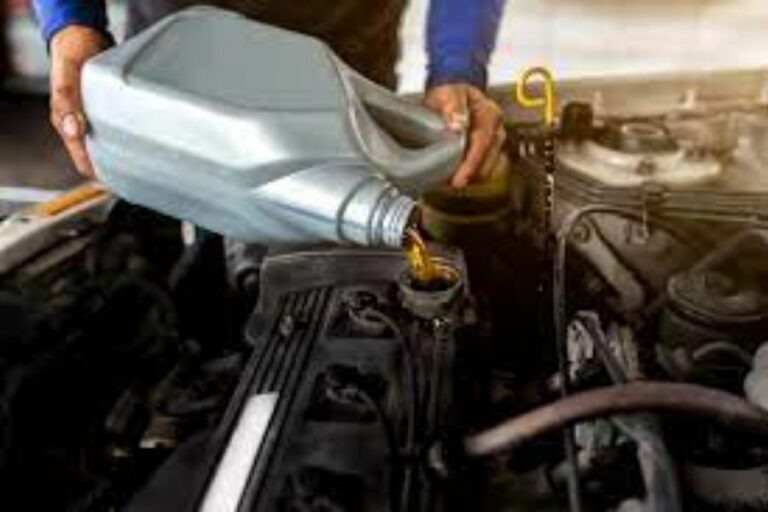
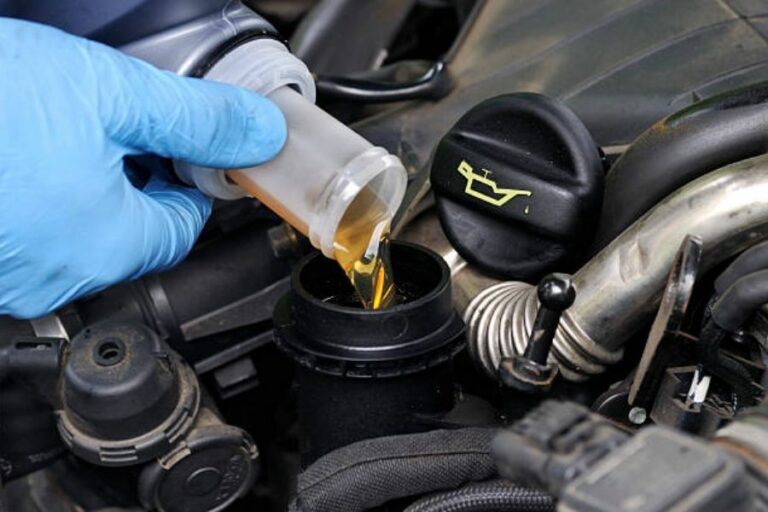
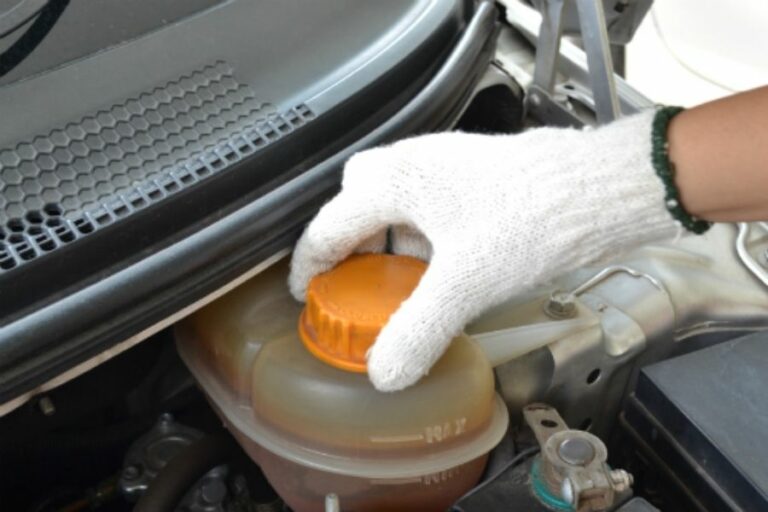
![Average BMW Brake Fluid Change Cost 2023[Dealership Rates]](https://carfluidpro.com/wp-content/uploads/BMW-Fluid-change-1.png)
